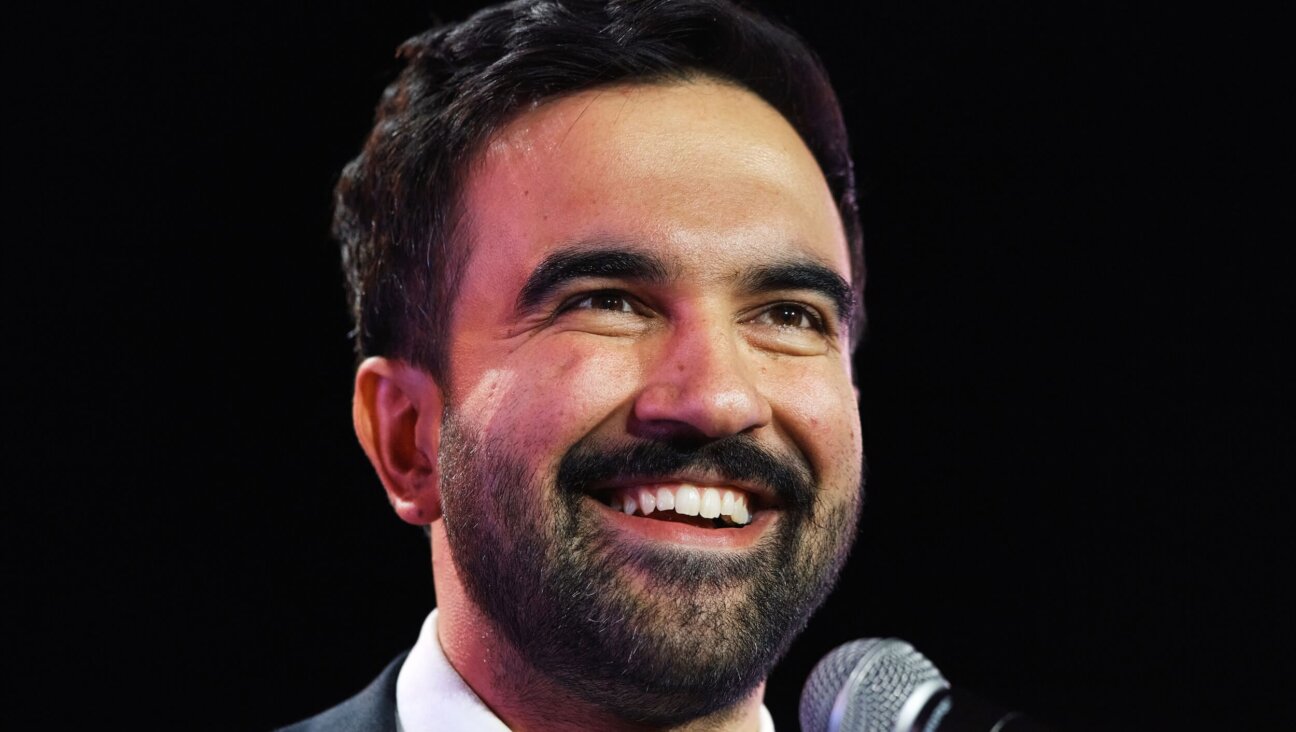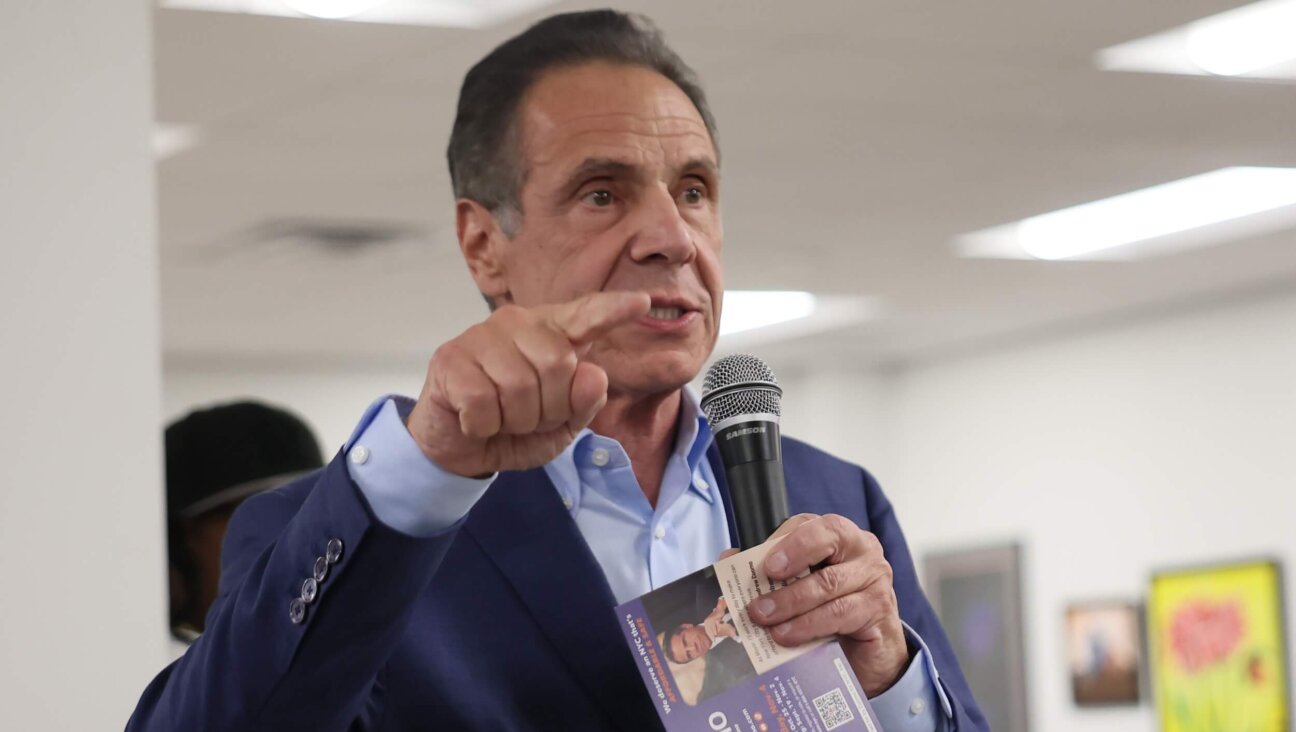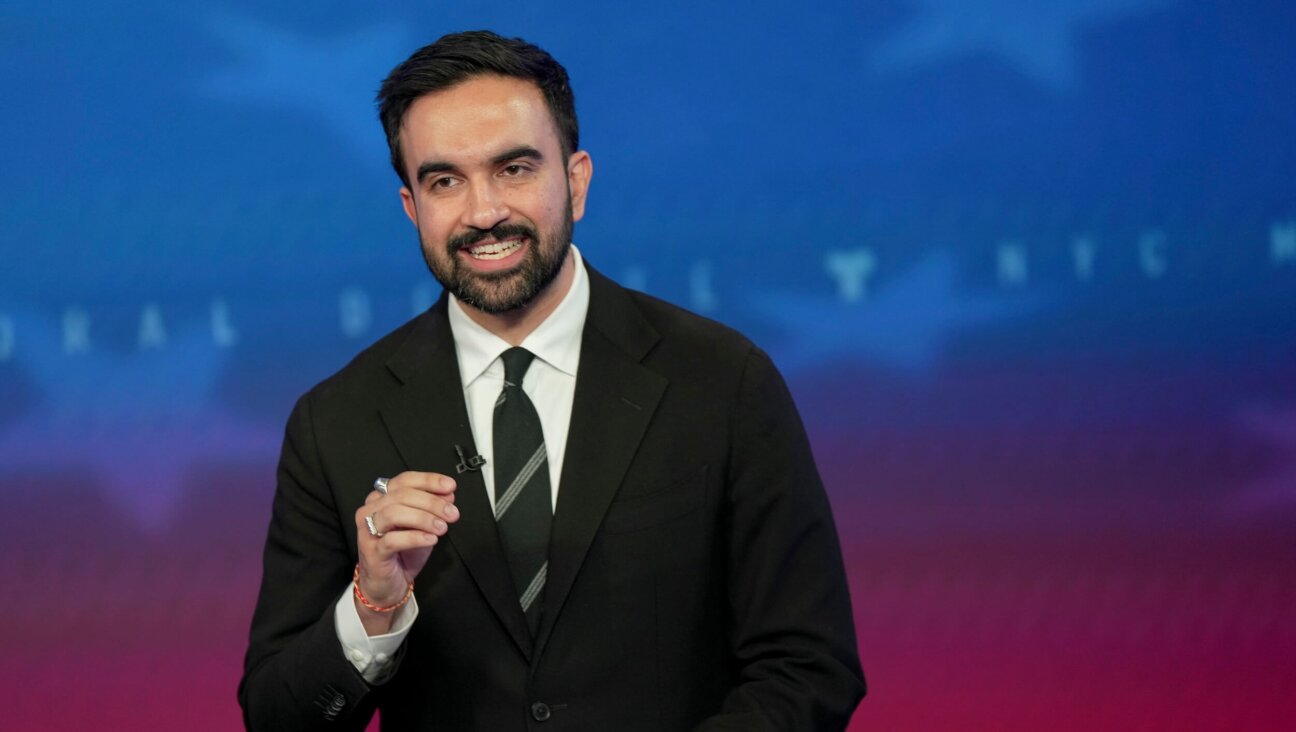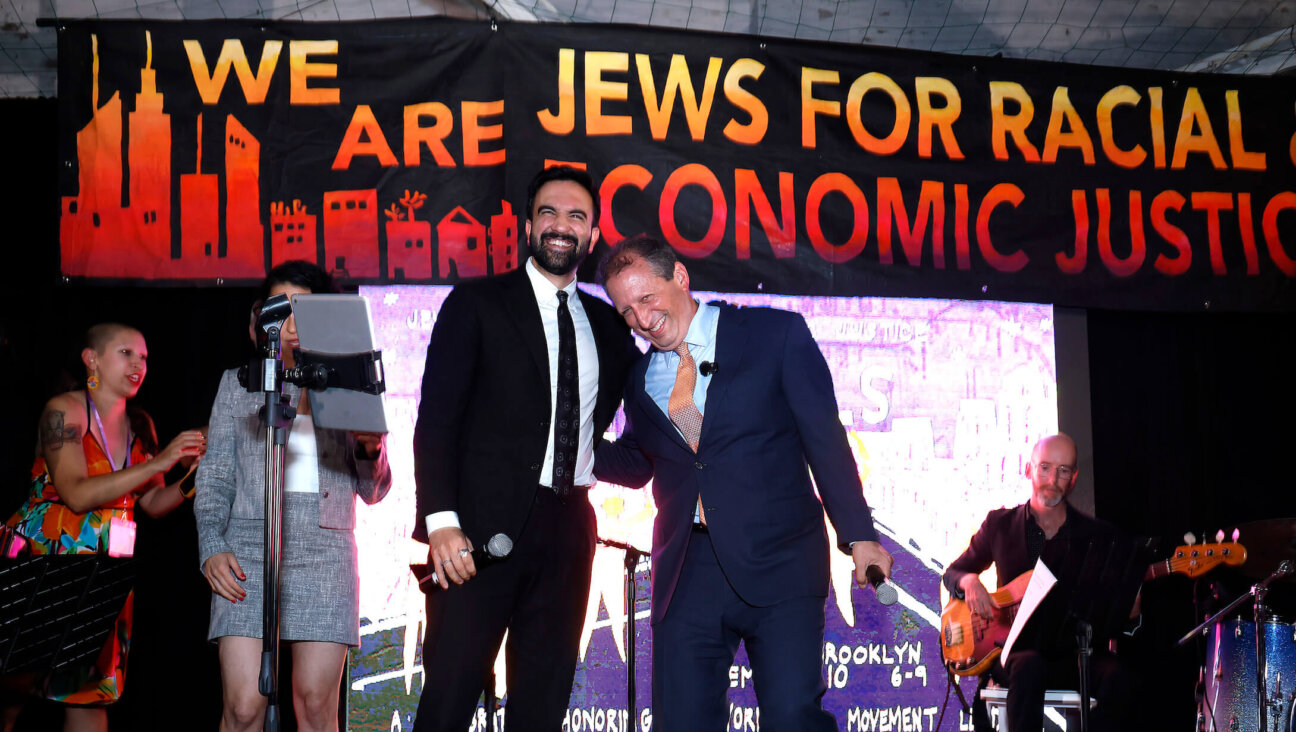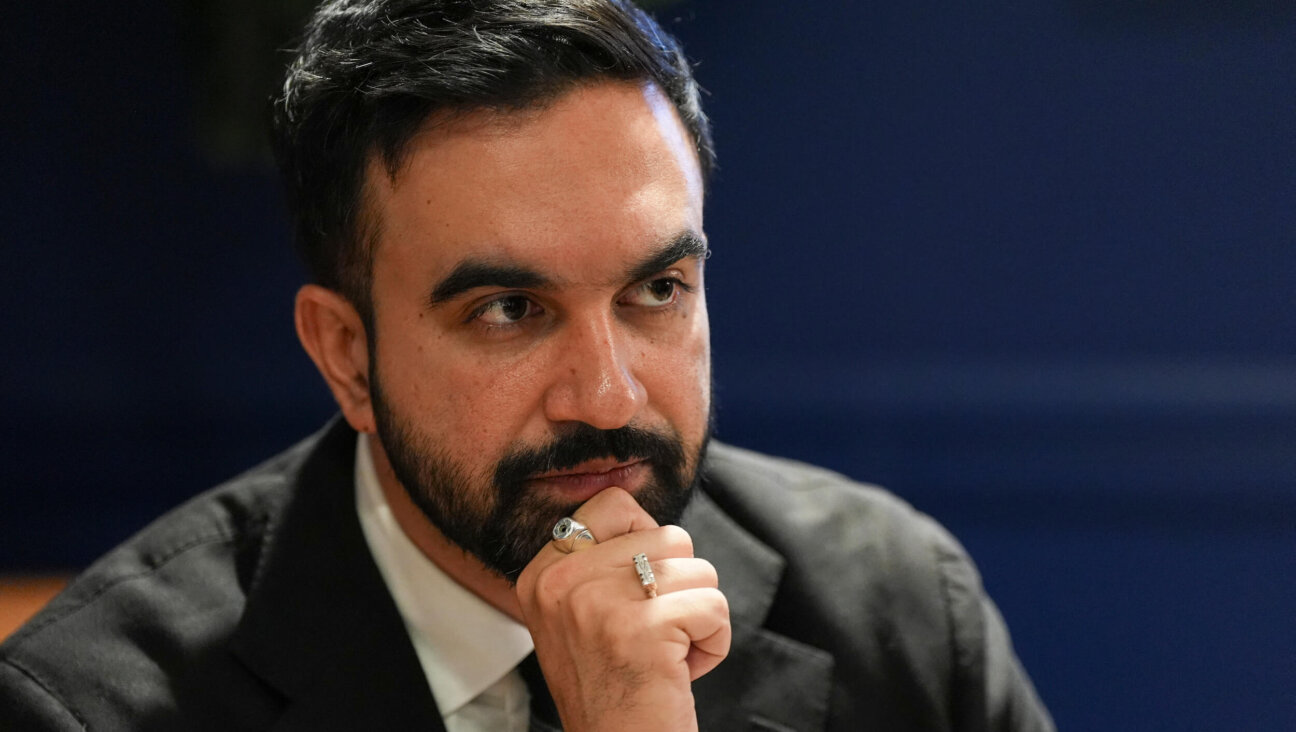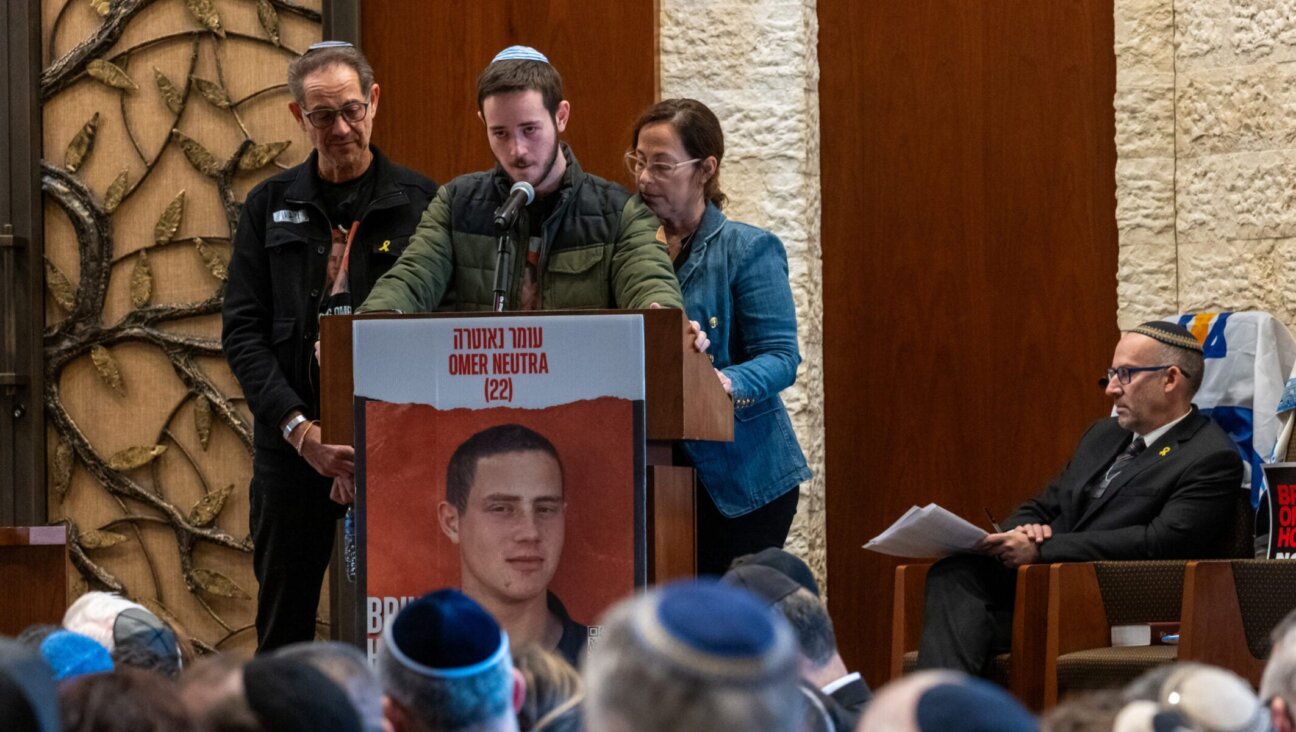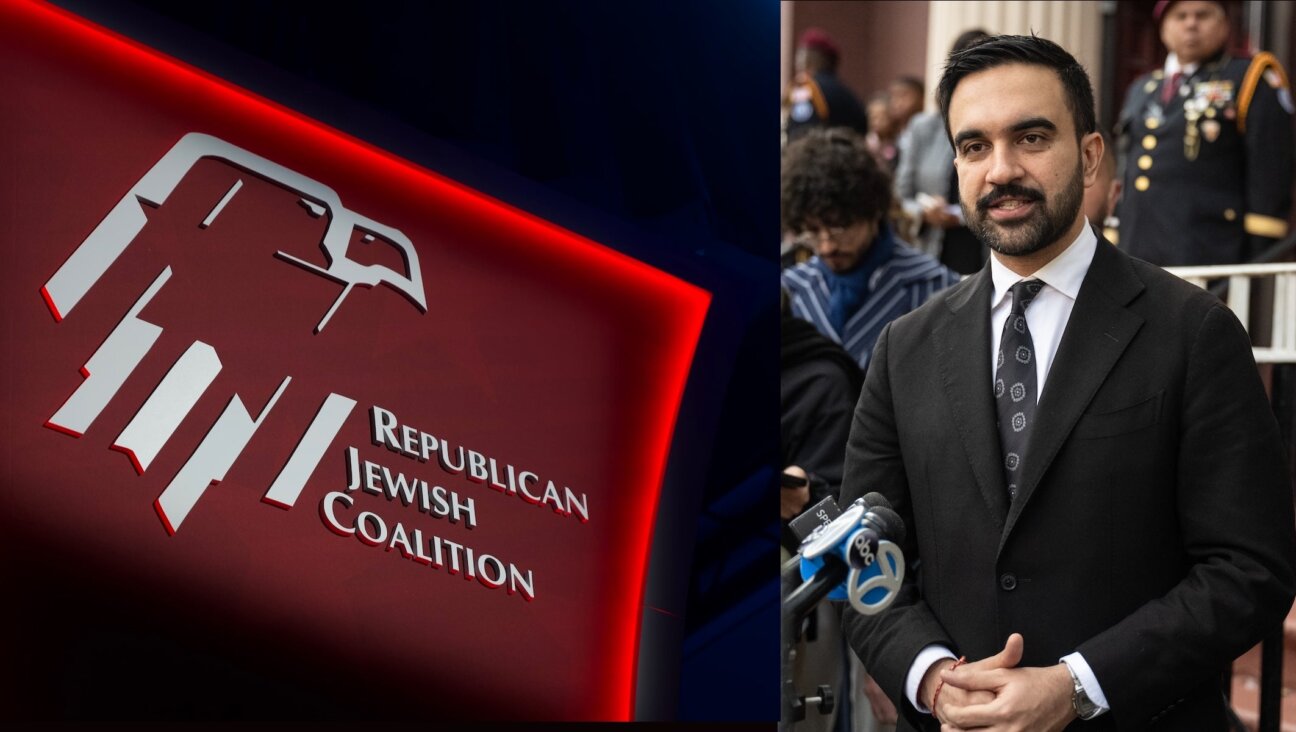Back to School — With River of Cash To Fight BDS

Graphic by Angelie Zaslavsky
Students returning to college in the coming days can expect to find the same campus tensions over Israel that they left behind in June. But they will notice a new reality: much more pro-Israel activity, fueled by a large new flow of cash.
The Campus Maccabees, backed by up to $50 million from casino mogul Sheldon Adelson and others, are gearing up to campaign against perceived efforts to delegitimize Israel. With a declared aim to reshape the face of Israel advocacy in colleges nationwide, the new group is a wildcard. Not only will it confront anti-Israel activists, it is already sending jitters throughout the established Jewish communal organizations.
David Brog, the group’s director, played it close to the chest when asked what he has planned. “Stay tuned,” he told the Forward. “They’ll be some important announcements made in the coming weeks.”
Brog, working from temporary offices at Adelson’s Venetian hotel in Las Vegas, is scrambling to assemble a team and launch programs for the first semester, which in many places has already begun.
The more immediate challenge for the Campus Maccabees — whose name is still being debated — is addressing widespread concerns among Jewish campus groups that the new initiative will deploy its cash with a right-wing tilt that reflects Adelson’s worldview and reach over existing players. Some fear a hostile takeover of their campus programs.
“If they’re going around vilifying people on the left, we have nothing to talk about,” said a leader of an Israel advocacy organization active on campuses, who asked not to be named due to the group’s policy of not criticizing other Jewish organizations publicly.
In recent weeks, Brog has been holding meetings with many Jewish players on the campus scene, trying to assuage their concerns, including the notion that the new initiative will take an exclusively right-wing approach to the Israeli-Palestinian issue. The meetings, however, have thus far excluded progressive-leaning campus organizations, such as J Street U and the Israel Action Network.
Nevertheless, Eric Fingerhut, president and CEO of Hillel, said after his meeting with Brog, “We’re all lucky he agreed to do this job.”
Most of the Jewish groups seeking to support Israel say that attempts by pro-Palestinian groups to boycott, divest from and sanction Israel (commonly referred to as BDS) are their key challenge. But despite the stepped-up effort and the boost in funds, both from the Maccabees and from other Jewish groups, there is no agreed-upon path for winning the campus fight. Advocates on the right are urging a proactive tough line that will go after groups supportive of BDS. Those leaning to the left are trying to reach out to progressives on campus with attempts to find non-BDS options for expressing their support for both Israelis and Palestinians.
Meanwhile, the many communal players focused on fighting BDS are chiming in from the sidelines with programs, ideas and pieces of advice.
In a recently released 12-minute video, Robert Satloff, executive director of The Washington Institute for Near East Policy, a think tank usually focused on policy issues, seeks to provide students and parents with advice on how to deal with the politics of Israel on campus, which he calls “one of the most confusing and difficult issues.” Satloff describes a “hostile and threatening” environment on some campuses, while assuring parents they are not sending off their children to “Dante’s seventh circle of hell.”
AMCHA Initiative, a California-based organization, has been leading a call to have the state officially some forms of anti-Israel activity on campus as anti-Semitic. It has also published a questionnaire for prospective students and their parents, aimed at “determining the campus climate for Jewish students relating to anti-Semitic and anti-Israel activity.” Here are some questions AMCHA suggests should be asked:
“How many students on campus identify as Jewish?”
“Was there a BDS campaign on campus, and if so, what was the result?”
“If there is an anti-Israel speaker on campus sponsored or funded by academic departments, do you require a balanced program to include a representative with a different view?”
In its Campus Trends Report published in August, the Israel on Campus Coalition found that the 2014–2015 school year was a year for anti-Israel activity on campus. The report found 1,630 documented events critical of Israel at 181 colleges nationwide. Forty-four campuses experienced BDS campaigns, compared with only 19 the previous year. At the same time, there were a record number of 3,753 pro-Israel events. These data reflected an unusually tense year on campus, triggered in part by last summer’s war in Gaza.
This year, no major events or conflicts involving Israel have taken place. But communal professionals tracking the issue believe that the rate of activity will not drop because of an increase in the number of pro-Palestinian or anti-Israel organizations on college campuses.
The Maccabees’ initiative intends to provide grants to existing campus groups to free them from the need to fundraise from a plethora of sources and from having to chase the same donor dollars. In essence, with his program’s ample resources, Brog will offer them a one-stop shop for their fundraising needs. But the Maccabees’ initiative also intends to launch its own programs under its own name. The nature of these programs is not yet clear.
When it was first launched, the Maccabees drew criticism for having a perceived right-wing tilt. This stemmed largely from a decision by Adelson and his partners to invite groups mostly affiliated with the right to participate, plus some non-ideological groups; dovish pro-Israel groups, such as J Street, were excluded. In meetings, Brog is attempting to correct this impression by stressing the group’s mainstream approach to fighting BDS and its bipartisan appeal.
Besides Adelson, who is one of the Republican Party’s largest donors, the Maccabees’ chief funder is Hollywood billionaire Haim Saban, a Democrat and top contributor to political campaigns of Bill Clinton and Hillary Rodham Clinton. But despite their different party affiliations, Adelson and Saban share views on Israel that place them both well on the hawkish end of the spectrum. Still, Saban’s prominence in the organization could equal Adelson’s once pledges are made, and could help bolster the Maccabees’ bipartisan image.
The Maccabees’ effect, several officials in other pro-Israel groups said, is stoking activity across the spectrum of Jewish campus organizations. “The fact that the Maccabees galvanized the right caused more galvanizing and coordination in the center and left,” one official said. Other donors, the official said, are opening their pockets to help support their players of choice on the campus arena, allowing a boost in activity.
Hillel, the largest Jewish campus organization, conducted its first all-staff BDS training this summer. The group was involved last year in 18 successful efforts to defeat BDS initiatives, another eight in which pro-Israel advocates failed to block BDS resolutions, and six campaigns that did not reach a vote. Hillel also held a “BDS think tank” during the summer break, in which professionals from the group discussed ways to prepare for anti-BDS work.
A surprising new force on the pro-Israel campus field this year will be the Jewish National Fund, which, thanks to a $100 million gift, is now positioned to become a major player. JNF, which already allocates between $4 million and $9 million a year to Israel programs on campus, plans to add another $5 million this year and is already accepting applications for grants funded by its newly announced Boruchin Israel Education Advocacy Center.
For Jewish students seeking to take part in pro-Israel activity, the intense focus on BDS and new investments by all groups offer a variety of political options.
Stand With Us, for example, is expected to put up $1.5 million for anti-BDS campus activity, which will include training 85 student leaders in combating anti-Israel activity. “The pro-Israel community is overwhelmingly committed to mutual respect on campus, and a just peace based on self-determination for both Jews and Palestinians,” said Roz Rothstein, Stand With Us CEO and co-founder. The agenda of BDS, she asserted, “is that Palestinians can’t have justice without turning the Jews back into a stateless people. Highlighting this glaring contrast between the two sides is a key to success.”
To the left, J Street U, the dovish lobby’s campus arm with 60 chapters across the country, is advocating engagement with progressive student groups. These groups have been the most supportive of BDS initiatives, and J Street U activists believe they hold the key to countering these measures. “With all the money going to the Maccabees, I don’t believe they’ll be successful in winning the hearts and minds of students,” said Sarah Turbow, J Street U’s director. “A vast majority of college students are liberal. Period.”
Reaching out to progressives is also a fundamental principle of the Israel Action Network, an anti-BDS group established jointly by the Jewish Federations of North America and the Jewish Council for Public Affairs. The group seeks to offer alternative ways of discussing Israel and expressing concern over its policies without going down the BDS path. “The best way to counter BDS is to build a coalition with Jewish and non-Jewish groups, which is pro-peace and pro-Israel, to really understand both the Israeli narrative and the Palestinian narrative, and to build a model for peace and reconciliation,” said IAN’s managing director, Geri Palast.
For these groups, as well as for Hillel, much of the focus this year will be on engaging with racial justice and ethnic organizations on campus. These groups have been attracting more attention and have gravitated in many cases toward the BDS movement, which they view as an articulation of their shared fight against oppression.
Hillel has been training its top professionals on ways to challenge claims about Israeli racial and ethnic discrimination, and the country’s treatment of minorities. Among other things, Hillel has brought in an Ethiopian-Israeli speaker to discuss these issues, and a black South African woman who is leading the charge against BDS in her country to consult the group on issues of ethnic and racial diversity and on building coalitions with minority organizations. The ICC report also lists groups dealing with the rights of lesbian, gay, bisexual and transgender individuals; fossil fuel divestment; private prison reform, and immigration reform as the BDS movement’s new allies.
“Anti-Israel campus activists have adopted a deliberate strategy for engaging these largely progressive organizations by forming personal relationships with influential activists,” the report states, arguing that Students for Justice in Palestine, the leading pro-BDS force on campus, “supports these social justice groups in their causes and in turn receives support from these campus organizations and their supporters.”
Contact Nathan Guttman at [email protected] or on Twitter, @nathanguttman



